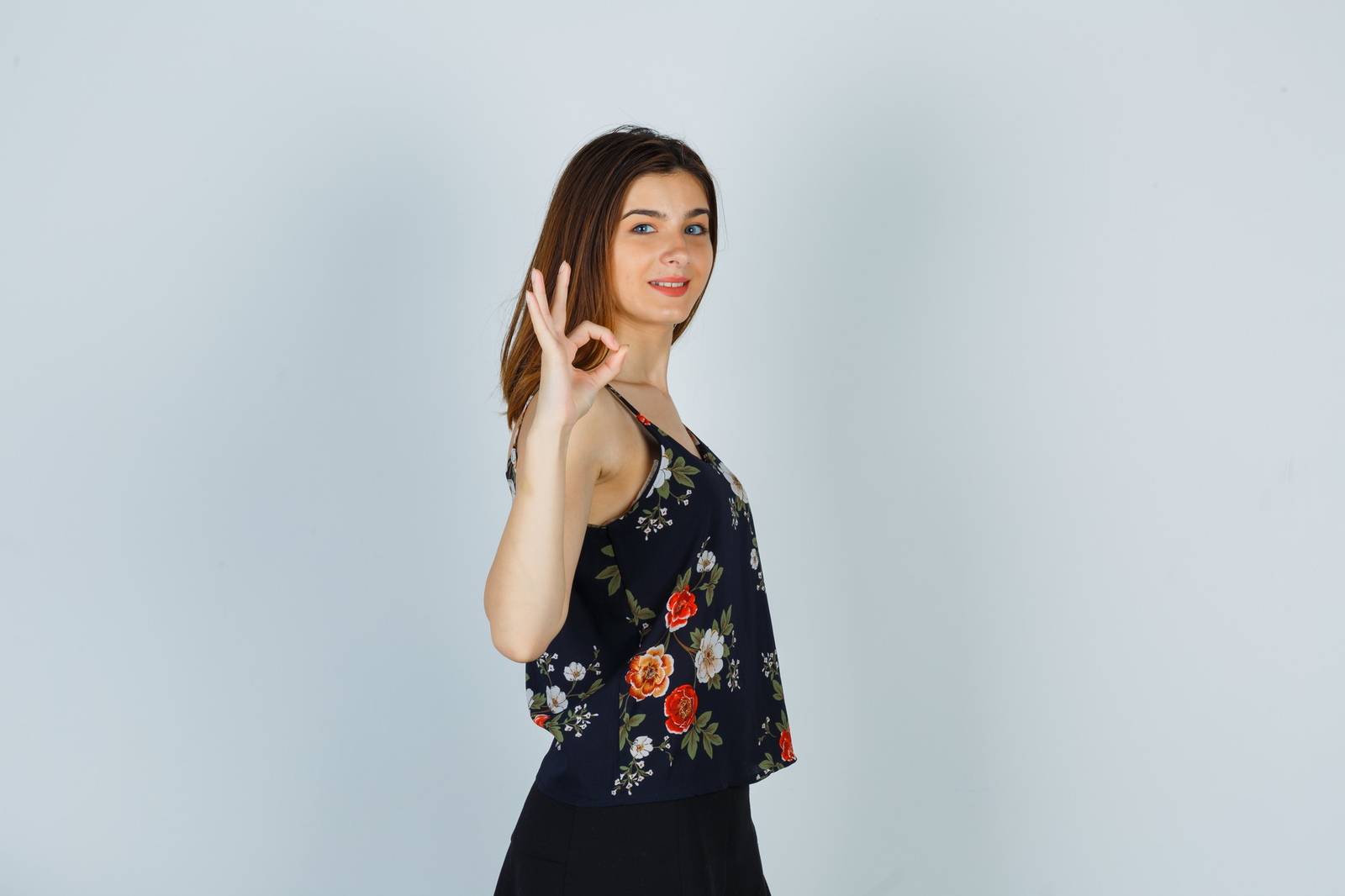
The Unacknowledged Pretty Privilege of You
By Sadia | Wednesday, March 19, 2025
Have you ever noticed how some people breeze through life—easier when it comes to them getting hired, treated nicely, or even being showered with unsolicited kindness?
Society is based on things like one’s race, gender, and class, which makes their experience quite different from others. While all of these privileges are talked about a lot, there is one which doesn't get much spotlight: the advantage and beauty of attractiveness.
Some people receive automatic advantages known as pretty privilege because of their physical attractiveness. Having good looks improves your chances of professional and social success that other people without attractiveness have no access to. Studies have shown that individuals who are categorized as conventionally beautiful are often considered to be smarter, more reliable, and more successful than others.
Unlike status or wealth, beauty privilege isn’t discussed or recognized, making it harder to challenge. Those who benefit from it do not even realize the advantages they receive, while those who don’t experience marginalization in stubbornly unrelenting forms. Beauty’s impact and presence in life are unquestionable, but it is equally a painful reality that many people prefer not to confront.
So how does this concern you? Regardless of where you lie on the beauty spectrum, pretty privilege impacts everyone and quite fully influences relationships, chances, and even one’s self-image. Appreciating the impact of such a privilege is the first step toward building a world that strives to do more than look at faces.

The Societal Benefits of Being Attractive
Physical appearance is one of the most powerful tools that help a person socially, even if it isn’t explicitly acknowledged. This is often referred to as pretty privilege. This phenomenon is widespread and can be observed in the following areas:
Professional Advantages
People who are attractive receive numerous professional advantages in their workplace settings. Scientific research demonstrates that attractive individuals gain better employment opportunities, higher incomes, and dominant job roles. The Institute of Labor Economics conducted research that demonstrated how physically attractive employees achieve pay levels that surpass those of employees with less attractive appearances by 15%.
Research from INFORMS demonstrates that attractive people achieve influential positions fifteen years following graduation at an increased probability of 52.4%.
Social Perceptions and Interactions
A person's physical look has a major effect on the way people perceive them across all situations outside their career. Appealing physical characteristics of individuals lead people to judge them as being outgoing and content with life while possessing high levels of achievement.
Attractive people trigger the halo effect which causes people to misjudge them as possessing multiple positive qualities. Research conducted by Psychology Today shows that attractive individuals get superior performance reviews, and people consider them better at their work, according to colleagues.
Empirical Evidence Across Contexts
Numerous studies show attractive people receive favorable treatment in different social settings. A Review of Economics and Statistics published study shows how good looks earn financial benefits for workers in the market. A Psychological Reports study discovered that attractive people frequently get interpreted as extroverted and content while achieving better results in life than unattractive people.
People who are considered physically attractive benefit from positive outcomes in workforce opportunity alongside social acceptability. It is essential to acknowledge pretty privilege in society to develop a fair environment that honors people based on their individual qualities instead of looks.
The Psychological Impact on Pretty People
Like many things, pretty privilege comes with advantages, but it also comes with psychological struggles. For those who benefit from their appearance, the stress of heightened expectations can lead to an identity crisis. On the flip side, we also mentioned that an attractive individual truly gets attention, but along with admiration, there is a constant conflict between sociologically bred value alongside personal self-value.
The Burden of Constant Maintenance
Attractiveness is often considered a temporary resource, and makes individuals work hard to maintain their external appearance. Achieving beauty may require persistent attempts such as intense workout sessions, strict dietary plans, makeup, or even surgery.
The constant need to keep up with changes in the fashion world may be stressful, and the anxiety caused by the thought of collapsing standards can cause body dysmorphia. As opposed to being an asset, for a bulk of the population, beauty brings a lot of confidence, but unfortunately, comes with the burden of being beauty’s caretaker.
Validation Tied to Looks, Not Substance
Attractive people inflate social success around attractive people, but mostly because of how they look instead of their inner competence. They develop a strong feeling of being imposters because they doubt if their success comes from talent or appearance. Repeated validation based only on physical appearance makes attractive people feel ignored for their talents and abilities.
Identity and the Struggle for Authenticity
The way people focus on beauty disconnects their outer looks from their real worth within themselves. Pretty people face demands from others that come with their good looks, but they must act charmingly perfect to stay attractive all the time. Such constant performances drain energy and make it harder to find real friendship that values who someone truly is rather than what they look like.
Fear of Losing Beauty’s Power
Beauty is regarded more as fleeting than intelligence, skills, or character. An appealing person's ongoing value can suffer due to aging, accidents, or changes in beauty trends, which can cause anxiety over the innumerable privileges they once relished.
Many do want to come to terms with the fact that the advantage and attention they receive is impermanent. A drop in appealing looks makes them ponder one’s standing in society. This fear fosters drastic measures in a bid to arrest youthfulness like having too many cosmetic procedures or attempting unhealthy lifestyle habits.
Good looks give people an advantage in society, but pretty privilege also creates mental stress, which people need to understand. Understanding that beauty affects people does not relieve them from feeling pressure to accept themselves.
The Social Cost of Pretty Privilege
Many people have better opportunities because they are attractive, yet this favored position causes undesirable social results no one considers. Our society often judges people at first glance through their outward look. People who look attractive experience unfair opinions about their personality and abilities instead of their true worth. People seek connections without proper motivation because their interactions become superficial.
Being on the receiving end of beauty discrimination causes serious pain for people who differ from standard beauty norms. Recent research confirms that people considered less attractive experience unfair treatment when seeking employment opportunities as well as in dating and standard communication situations. People believe appearance shows someone's value, which supports unfair social rankings.
Almost every advantage of prettiness leads to parallel disadvantages that people with ordinary looks escape. People who look attractive receive advantages yet deal with unwanted feelings from others who doubt their skill or dismiss their accomplishments. Those who look attractive have to prove themselves more due to external judgments, but others dismiss their success since they think it came from physical attributes only.
How someone handles their attractive features will determine how people react to them. When women honor their attractive appearance, they are criticized as self-absorbed and uncommitted. When they ignore their advantages, many receive dangerous questions and negative comments from others. Beauty simultaneously benefits and harms the people who have this advantage in life.
Pretty privilege reveals how strongly society relies on appearance-based discrimination. Having good looks provides entry opportunities, but people see attractive individuals only through this lens and rarely see beyond the surface. Our society needs to eliminate physical appearance bias both within itself and between individuals.
The Intersectionality of Pretty Privilege
Pretty privilege works with different types of social advantages that people have because of their race, gender, and finances. A pretty face often helps people advance, but it never removes unfair treatment against any attractive person. Social groups and society shape how pretty privilege functions based on long-held beauty stereotypes.
Beauty advantages mainly benefit people who belong to dominant racial groups. Many societies worldwide accept Eurocentric standards for beauty that promote lighter skin tones and exact patterns of facial traits and body shapes. People who match these beauty standards gain better opportunities than others who do not belong to this group despite appearing attractive according to their own social standards. The privileges enjoyed by one person are stopped for another because of racial differences.
Gender also affects how pretty privilege is experienced. Moreover, women tend to receive greater criticism than men for their looks. While pleasant looking women do obtain certain social and professional benefits, they are expected to maintain their looks in order to be considered valuable. In contrast, men may benefit from looks but generally do not need to rely on them for affirmation and success.
Sociodemographic characteristics such as socioeconomic status can further enhance or limit the impact of beauty privilege. Wealthier people have better skincare, cosmetic surgery, and clothing, which makes it easier for them to look appealing. On the other hand, individuals from low-income backgrounds may not have the same access, making beauty a privilege that is often supported by financial status.
Moreover, beauty standards vary between cultures and individual tastes. What one region sees as important may not hold the same value in another. This shows that pretty privilege is not global, it is conditioned by shifting societal standards and individual views of beauty.
Understanding the intersectionality of pretty privilege enables us to appreciate that beauty is not the only factor that provides benefits. Other social dynamics determine who receives the benefits, how many, and to what degree, which makes the discourse regarding attractiveness and privilege more intricate than it seems.

The Limits of Pretty Privilege
Like all forms of privilege, pretty privilege has its benefits and its setbacks. While opportunities might arise due to someone's attractiveness, the individual may also have to endure pesky societal standards that assume a lot more than meets the eye. This is especially true as the individual ages and the returns begin to dwindle. Unlike other privileges, beauty is extremely oscillatory. It alters with age and changes with perception and tends to be viewed as superficial instead of profound.
Judgment Beyond the Surface
Attractive people often face the stereotype of not being smart or capable of doing much. Dismissing a person's capability because of their appearance leads to the crude assumption that they lack depth, which is incredibly damaging and unfair.
In the professional environment, attractive women are sometimes seen as unqualified or accepted for their beauty instead of their efforts. Equally so, good-looking men may face difficulties in being accepted as serious if their looks blanket their skill set.
Relationships and Perceptions
Having pretty privileges can make things complicated when dealing with people on a personal level. Attractive people may struggle in building meaningful connections because people often come with stereotypes.
Some people are overvalued for their looks and undervalued for their personalities, which can lead to the feeling that relationships are more transactional. This could make social interaction difficult due to extreme peer jealousy or resentment.
The Expiration Date of Beauty
Beauty is unlike wealth or education in that it is not a lifelong entitlement. The advantages of pretty privilege can diminish as one grows older, especially when you live in a society that worships youth.
Those that have depended on their looks for a long time may find it increasingly difficult to navigate feelings of self-worth after moving away from acceptable beauty standards. The fear of becoming “invisible” can result in anxiety, an unhealthy obsession with excessive cosmetic changes, or even an identity crisis.
Changing Beauty Standards
Views on beauty will always change with time, so what is seen as attractive today could be seen differently tomorrow. Pop culture, media, and societal norms shift and influence beauty trends, which in turn make the ideal look from ten years ago relative. With that being said, the ever-changing definition of beauty makes the idea of ‘pretty privilege’ unstable and, therefore, unjust and fluctuating.
A Privilege, But Not a Guarantee
While pretty privilege can offer advantages, being attractive does not guarantee long-term success or happiness. Enduring qualities like true confidence and self-esteem arise from aspects of a person that go deeper than mere appearance. Recognizing what pretty privilege enables leads to an important discussion about what defines value and success in life.
Moving Toward a More Inclusive Society
You live in a world where beauty matters, but does it determine someone’s value? Opening doors shouldn’t determine the way a person is treated, acknowledged, or given opportunities. Treasured relationships, successful careers, and truly remarkable change stem from something more important than looks—those traits are compassion, wisdom, strength, and honor.
Imagine a world where your skills are valued more than your appearance - where job interviews concentrate on skills, social relations are based on actual connections, and being “presentable” isn’t a requirement for educational achievement. This reality can be shifted by acknowledging the impact of pretty privilege on your assessments and interactions.
Start with becoming more self-aware. Have you ever assumed that someone was nicer or more sociable than they really were just because they were good looking? Do you notice yourself judging people differently because of how they look? Acknowledging such biases enables you to make decisions that are not based on superficial factors. Force yourself to appreciate people for who they are, as opposed to their outward appearance.
You can also champion a world where worth goes beyond the superficial. Support equal opportunity policies in employment, advocate for inclusivity in media representation, and promote conversations prioritizing values over shallow considerations.
Remember that your actions toward other people contribute to the society you live in. Treat other people with respect, as to why they ought to be respected; because rotten privilege stems from having low standards and offering empty praises, one that is given freely.

Conclusion
Little attention gets given to how pretty privilege changes what people can do and how people talk about one another in their daily life. Even though beautiful people gain advantages, they help outdated ways of thinking, which value outer appearance before genuine inner strength. Fighting for change becomes necessary to build an environment where people receive proper respect because of their true character.
By accepting diversity in all its aspects, especially looks, we build a system that gives every person fair access to opportunities. By moving beyond superficial standards to assess character and emotional intelligence, you create an environment that honors real personality. Progress requires us to spot our beauty biases and change the culture to value beauty as art rather than a measurement.
References
Gulati, A., Martínez-Garcia, M., Fernández, D., Lozano, M.A., Lepri, B. and Oliver, N. (2024). What is beautiful is still good: the attractiveness halo effect in the era of beauty filters. Royal Society Open Science, 11(11). INFORMS (2025). New Study Unveils Career Impact of Attractiveness: Higher Salaries and Prestigious Roles Over Time.
Scholz, J.K. and Sicinski, K. (2015). Facial Attractiveness and Lifetime Earnings: Evidence from a Cohort Study. Review of Economics and Statistics, 97(1), pp.14–28.
wol.iza.org. (n.d.). IZA World of Labor - New report: Physically attractive people earn 15% more than plainer colleagues. www.psychologytoday.com. (n.d.). Do Prettier People Get More Job Offers | Psychology Today.






